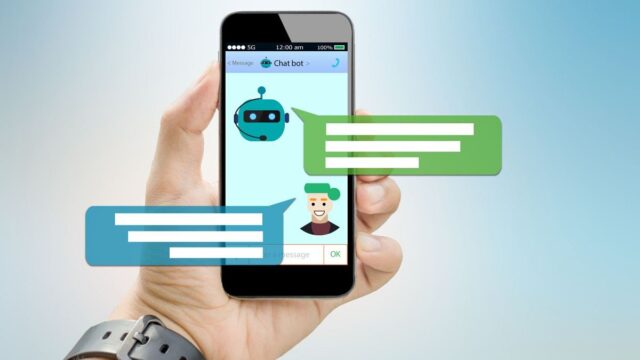Researchers at MIT used AI to create a chatbot where you can talk to your ‘future self’, leading users to feel less anxious or demotivated after the chat.
Have you ever dreamed of talk to your ‘future self’ who has lived to be 60 years old? A team of researchers from the Massachusetts Institute of Technology (MIT) in the United States could offer you the closest possible way to experience it.
To do this, they use artificial intelligence (AI) to imitate a natural-sounding conversation. They used the popular model GPT-3.5 developed by the company OpenAI and asked the study participants a series of questions about their life, their past experiences and their aspirations.
The system then created “a retrospective history of the user” that the study’s authors also called “synthetic memory.”
For example, a user can aspire to be a teacher of biology at a high school. He AI chatbot of the future can recount the “memorable moment” of taking students “on a field trip to a local nature reserve.
Future self-continuity
Los MIT researchers They resorted to “future self-continuity“, a behavioral science concept that states that people who feel a strong link between their present and future selves are more likely to make decisions that promote their long-term well-beingwhether financial, educational or health.
“Humans have a hard time imagining the future vividly. This limitation can lead to a cognitive bias, known as ‘temporal discounting,’ which in turn leads people to prioritize immediate rewards over long-term benefits“Ivo Vlaev, professor of Behavioral Sciences at the University of Warwick, United Kingdom, explains to ‘Euronews Next’ in an email).
The chatbot created by MIT researchers, which includes an altered profile photo to show the participant a version of their 60-year-old selfis capable of reducing the temporary discount.
“When people interact with a digitally aged version of themselves, the future can seem more tangible and immediate, reducing the psychological distance between the present and the future,” adds Vlaev.
For the teacher, the chatbot embodies the idea of a nudge or subtle intervention designed to guide behavior in beneficial wayswhich could lead users to make better decisions by making the future self more relevant to the present.
Greater well-being
In a article which has not yet been reviewed, the MIT team tested its application with 344 people between 18 and 30 years old.
They observed that “users declared a decreased anxiety” after having a conversation with your older digital self, as well as a decrease in “negative emotions” or feelings of demotivation.
While more research is needed to understand the results better, Vlaev says effectiveness will likely depend on the chatbot’s ability to sound authentic.
“The use of a digitally aged image is a clever touch, as it Visualizing yourself in the future can increase the feeling of continuity and realism“, he states.
“However, it is not clear whether people have done anything differently, whether they have changed their behavior, as a result of interacting with their future selves,” Vlaev said.
The researchers point out in the section ethical considerations of the study that we must be careful with AI-generated content that may support negative or harmful behavior.







